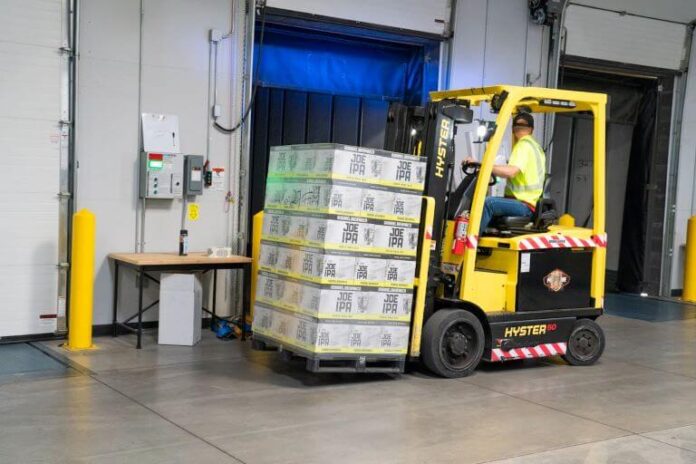Optimizing supply chain efficiency is a top priority for businesses aiming to stay competitive in today’s fast-paced global economy. Supply chain management goes beyond simply moving goods from one point to another; it involves a complex network of activities, people, technology, and resources. Businesses of all sizes, from small startups to global corporations, must focus on enhancing their supply chain to reduce costs, improve production timelines, and meet customer expectations.
Effective supply chain strategies help companies streamline operations, avoid costly delays, and maintain a smooth flow of products. This article delves into some essential strategies for achieving these goals.
1. Embrace Digitalization
The rapid rise of digital technologies is transforming every aspect of supply chain management. Embracing digitalization can bring significant improvements to how companies manage their supply chains. For instance, technologies like automation, real-time tracking, and artificial intelligence (AI) help reduce errors and streamline processes. Companies are now able to predict demand more accurately, optimize routes for delivery, and reduce bottlenecks in production.
Furthermore, digitalization enables real-time data sharing across different departments and even with suppliers and customers. This transparency improves communication and allows for quicker decision-making, which can prevent delays. Automated systems can take over repetitive tasks, enabling staff to focus on higher-level strategic initiatives. Businesses that fail to embrace these technological advancements risk falling behind their competitors, making digitalization an essential strategy for supply chain efficiency.
2. Invest in Workforce Development
While technology is a critical component, the human element remains at the heart of any successful supply chain. Employees who are well-trained and knowledgeable about supply chain operations can significantly enhance a company’s efficiency. Encouraging workforce development through continuous education, certifications, and training programs is vital for staying competitive.
One effective way to ensure that your workforce stays current is by offering opportunities for them to pursue further education. For example, an online degree in manufacturing management can provide employees with valuable insights into supply chain dynamics, production management, and logistics optimization. These programs equip professionals with the necessary tools to streamline processes, manage risks, and implement more efficient practices. Investing in your workforce not only boosts productivity but also ensures long-term growth for the company.
3. Collaborate with Suppliers
Supplier relationships are a key factor in determining the success of any supply chain. Collaboration with suppliers goes beyond transactional interactions—it requires building strong, long-term partnerships based on mutual trust and shared objectives. Open communication between suppliers and businesses enables smoother coordination, especially during unexpected disruptions or changes in demand.
Collaborating closely with suppliers allows businesses to negotiate better terms, improve lead times, and find ways to reduce costs. For instance, suppliers can provide valuable insights into inventory management and production schedules. Joint problem-solving can lead to innovative solutions that benefit both parties. Additionally, fostering a collaborative environment with suppliers can improve the overall agility of the supply chain, helping businesses respond to changes in market conditions more effectively.
4. Optimize Inventory Management
Effective inventory management is essential for avoiding common supply chain problems such as stockouts, overstocking, and wasted resources. When inventory is not properly managed, businesses run the risk of losing sales opportunities or incurring unnecessary storage costs. Optimizing inventory ensures that the right products are available at the right time without tying up excess capital in unnecessary stock.
One of the most popular strategies for inventory optimization is the implementation of just-in-time (JIT) inventory. JIT aims to reduce inventory costs by receiving goods only when they are needed for production or sales. This minimizes storage costs and reduces waste. Other businesses are turning to automated systems that use data analytics and forecasting tools to monitor inventory levels in real time. These systems allow for quick adjustments and help avoid both shortages and excesses.
5. Leverage Data Analytics
Data analytics has become an indispensable tool in modern supply chain management. With access to large amounts of data, businesses can gain valuable insights into various aspects of their supply chain, from customer demand trends to internal performance metrics. These insights enable companies to make more informed decisions that improve efficiency.
For instance, predictive analytics tools can forecast demand based on historical data, allowing businesses to adjust their inventory levels accordingly. This reduces the risk of both stockouts and overstocking. Additionally, data analytics can help identify inefficiencies in production, logistics, or supplier performance, providing opportunities for improvement. Companies that leverage data analytics can optimize their supply chain operations more effectively than those that rely on traditional, intuition-based decision-making. By using data to guide their strategies, businesses can ensure smoother operations and increased profitability.
Conclusion
Optimizing supply chain efficiency requires a comprehensive approach. By integrating these strategies, businesses can reduce costs, improve performance, and respond more effectively to market demands. Streamlining supply chain operations not only leads to better financial outcomes but also ensures that companies remain competitive in an increasingly complex global market. Focusing on continuous improvement in these key areas is vital for long-term success and sustainability.
